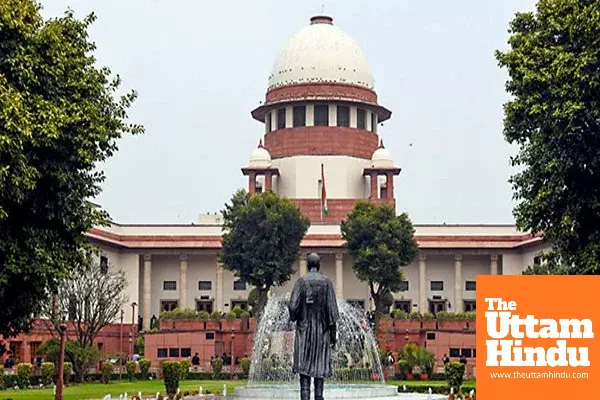Waqf Case Hearing: Khajuraho Example Raises Questions

New Delhi (The Uttam Hindu)- Several petitions challenging the new Waqf law were heard in the Supreme Court on Tuesday. During this, CJI BR Gavai, referring to a temple in Khajuraho, said that the temple is under the protection of the Archaeological Department and yet people can go there and worship. On this, Kapil Sibal argued that the new law says that if it is an ASI protected area then it cannot be a Waqf.
Solicitor General Tushar Mehta presented the government's side before the bench of CJI BR Gavai and Justice AG Masih. He said that initially three points were decided. We responded on three, but the parties have mentioned issues other than these three. I think the court should focus only on three issues. However, Kapil Sibal opposed the Solicitor General's statement and said that we will argue on all the issues. Kapil Sibal argued that in the last hearing it was said that if there is a need to issue an interim order, the court will issue it. On this, SG Tushar Mehta read the previous order before the court. While reading the order, the Solicitor General said that the government has given an undertaking that there was a discussion on the appointment of board members, Waqf by User and the role of DM. These were the three issues on which the government had given an undertaking.
On this statement of Solicitor General, Sibal said that there should be a hearing on issuing interim order in this case. On this, the Supreme Court said that the hearing of the case should be taken forward. Sibal said that this is illegal and will take away the control of Waqf property. There will be an investigation due to the possibility of any dispute on the property to be Waqf. The Collector will investigate and the Collector is a government official. In such a situation, there is no time limit for investigation. Until the report does not come, the property cannot be Waqf. Whereas the property is given in the name of Allah. Once it is Waqf, it is forever. The government cannot give financial help in it. Sibal further argued that unlike temples, there is no offering in mosques. These institutions run on donations.
On this, the court asked that offerings are made in dargahs. Sibal said that I am talking about mosques, dargahs are different. He said that offerings are made in temples, but not in mosques and this is 'Waqf by User'. Babri Masjid was also like this. From 1923 to 1954, different provisions were made, but the basic principles remained the same. Sibal further said, "The new law says that as soon as any building is declared an ancient protected monument under the ASI Act, the right of Waqf on it will end. A provision has been made in the new law that a person who converts to Islam cannot make Waqf before 5 years. This provision is completely unconstitutional. Earlier, people used to be elected in the Waqf Board and all were Muslims. Now all the members will be nominated and out of 11 members, 7 can now be non-Muslims."
